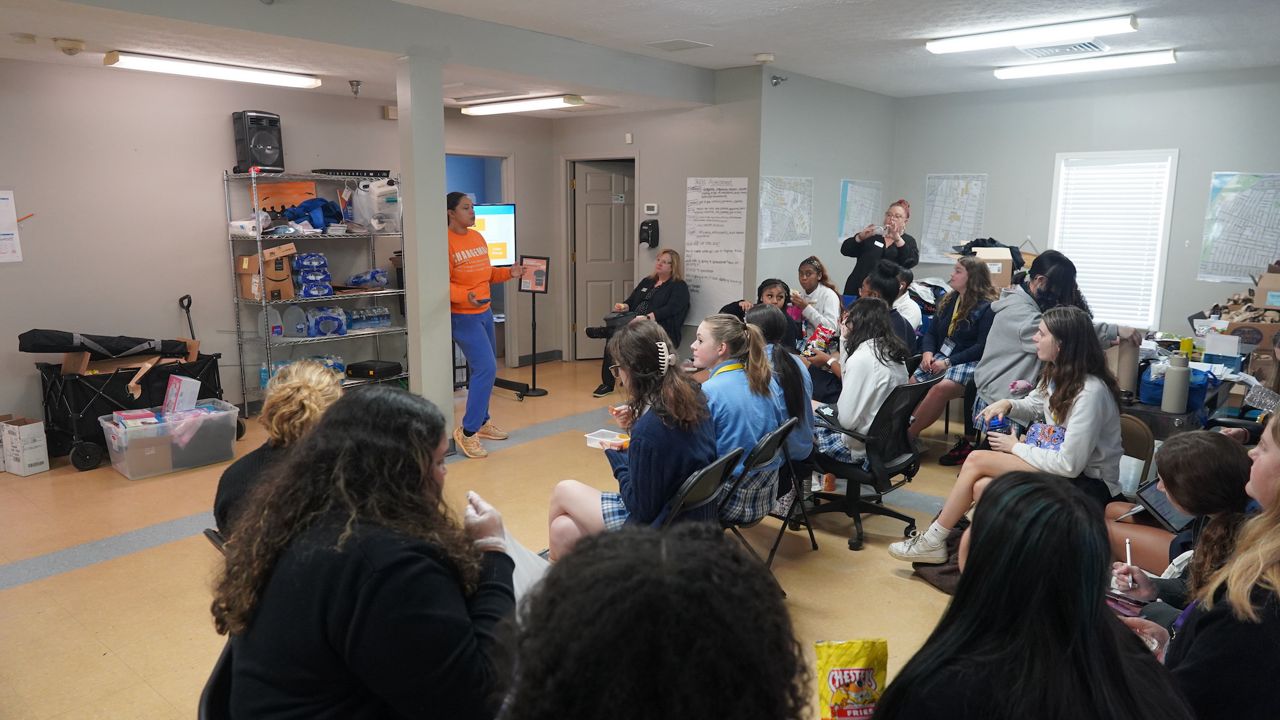Correction: A previous version of this story stated Change Today, Change Tomorrow has been operating for a decade. The organization has only been operating since 2019. The error has been corrected. (April 26, 2023)
LOUISVILLE, Ky. — Many Louisville families take it for granted — easy access to fresh food.
Over 20 students from Mercy Academy Catholic High School are learning what fighting food and public health injustices look like during a visit to the Black-women-led nonprofit called Change Today, Change Tomorrow.
The task at hand for Mercy Academy Catholic students is to check over the produce and throw out any that’s past its prime. If there are bruises or mold, it’s got to go.
The groceries will be picked up by families living near this west end nonprofit on 5th Street.
“Zip codes 40211 can come by and shop our produce, like a market style pop up. We have fresh produce, meat and eggs that we are giving away today,” Icyrieen Ford told Spectrum News 1.
Change Today has been operating since 2019. Its mission is to help families receive healthy food while advocating for brick and mortar solutions. Sorting the donated fruits and vegetables is just an introduction for the visiting students to the much bigger problem Change Today is hoping to solve.

Change Today, Change Tomorrow is a nonprofit fighting the injustices surrounding accessible, quality, fresh food.
“A lot of their west end neighbors don’t have those resources and it is important for them to understand that these people are dying because they do not have the resources that are available to everyone else,” Ford explained.
Consider this. The bus ride from Mercy Academy takes about an hour round-trip to Change Today headquarters. However, for many residents of the West End, taking a city bus to and from the closest chain grocery store can take two hours or more.
“All of our grocery stories have been closing down. They closed the Kroger on 2nd Street, which was essential — there is a big elderly and disabled community that went to that grocery store,” Ford recalls.
Not only is much of West Louisville in a food desert, many who live here don’t have access to a car. They get their groceries home by going on foot, by bike and by bus, collecting whatever they can carry.
The negative health effects of living in neighborhoods without easily accessible groceries are well documented. Ford offers this statistic, “There is a 10-year difference in life expectancy for our west end residents versus our east end residents.”
“Our girls are learning that finding good food in the West End is hard so they are working to try and bring out more knowledge and they are working to get the food in the hands of the people,” Sarah Sills, a counselor at Mercy Academy, told Spectrum News 1. So in sorting food by its quality, Mercy Academy students are introduced to the inequality pressed upon their neighbors living in the same city as they do.



